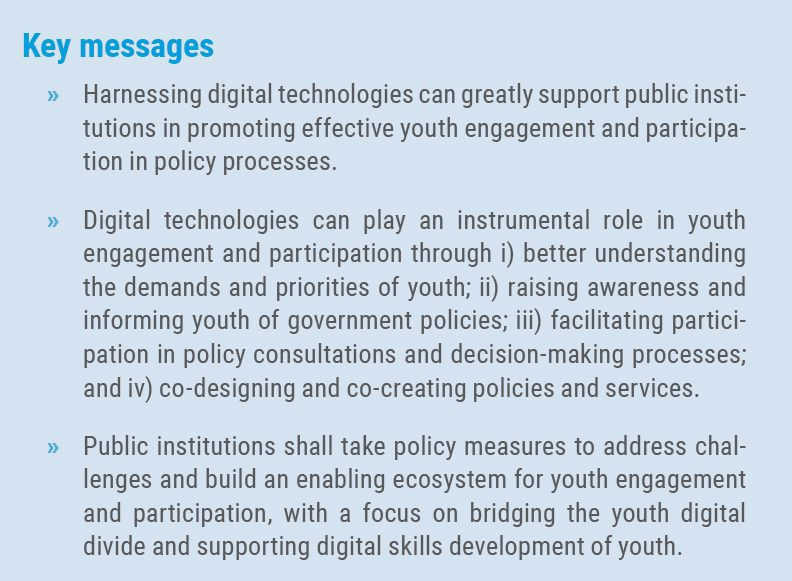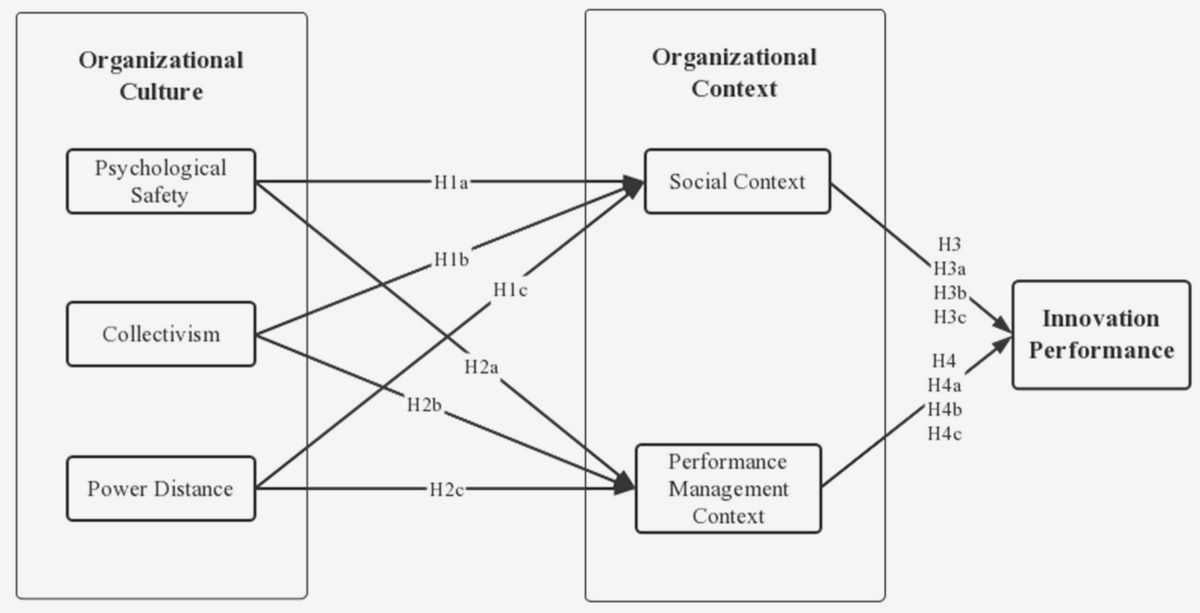In today’s rapidly changing world, social innovation has emerged as a powerful force for addressing pressing global challenges. From poverty and inequality to climate change and healthcare, social innovation encompasses a wide range of creative solutions that aim to improve the lives of individuals and communities. While governments and businesses play a crucial role in driving innovation, civil society has also emerged as a vital actor in this process.
Civil society, which includes non-governmental organizations, community groups, and grassroots movements, acts as a catalyst for social innovation by mobilizing local resources, fostering collaboration, and amplifying the voices of marginalized groups. By leveraging their deep understanding of local needs and challenges, civil society organizations are able to design innovative solutions that are tailored to the specific context in which they operate. This bottom-up approach ensures that no one is left behind and that solutions are sustainable and inclusive.
In addition to their role as innovators, civil society organizations also play a crucial role in advocating for social change. They act as watchdogs, holding governments and businesses accountable for their actions and pushing for policies that promote social justice and equality. Through their advocacy efforts, civil society organizations are able to create an enabling environment for social innovation to flourish, by removing regulatory barriers and creating incentives for businesses and individuals to engage in socially responsible practices.
Furthermore, civil society organizations serve as platforms for collaboration and knowledge sharing. They provide a space where stakeholders from different sectors can come together to exchange ideas, share best practices, and learn from each other. This collaborative approach not only helps to accelerate the pace of innovation but also ensures that solutions are scalable and replicable, so that they can have a greater impact on a larger scale.
In conclusion, civil society organizations play a vital role in promoting social innovation. Through their innovative approaches, advocacy efforts, and collaborative platforms, they unleash the potential of individuals and communities to address pressing social challenges. It is therefore essential that governments, businesses, and individuals recognize the importance of civil society and actively support its work, in order to create a more just and sustainable world for all.
Understanding the Importance
In order to fully grasp the vital role of civil society in promoting social innovation, it is crucial to understand the importance of this sector in driving positive change. Civil society organizations, including non-governmental organizations (NGOs), community groups, and grassroots movements, play a key role in mobilizing individuals and communities to address social challenges.

One of the primary reasons civil society is important is its ability to bring diverse perspectives and voices to the table. These organizations often work directly with marginalized groups and communities, giving them a platform to be heard and empowering them to actively participate in decision-making processes. By amplifying these voices, civil society helps to ensure that all members of society are represented and their needs are taken into consideration.
Moreover, civil society plays a crucial role in fostering social innovation by promoting collaboration and knowledge-sharing. Through partnerships with other sectors, including the public and private sectors, civil society organizations can leverage their expertise and resources to develop innovative solutions to complex social problems. By breaking down silos and promoting cross-sector collaboration, civil society helps to create an environment conducive to social innovation.
An important aspect of civil society’s role in promoting social innovation is its ability to act as a watchdog. These organizations often serve as independent advocates, holding governments and other actors accountable for their actions and policies. By monitoring and raising awareness of social issues, civil society helps to drive social change and ensure that social innovation is responsive to the needs of the most vulnerable members of society.
Catalyst for Change
Civil society plays a vital role in promoting social innovation and acting as a catalyst for change. This diverse group of organizations, associations, and individuals serves as a bridge between the government and the people, advocating for their needs and driving positive transformations in society.
One of the key functions of civil society is to identify pressing social problems and develop innovative solutions. By harnessing the expertise, creativity, and diverse perspectives of its members, civil society organizations are able to address complex issues that may not be adequately tackled by traditional government or private sector approaches.
Moreover, civil society acts as a platform for citizen empowerment and engagement. Through grassroots initiatives, advocacy campaigns, and community-driven projects, civil society organizations give individuals a voice and provide opportunities for them to actively participate in shaping their communities. This not only strengthens democracy, but also fosters a sense of ownership and collective responsibility for social change.
Civil society also plays a crucial role in holding governments accountable and ensuring transparency and accountability in decision-making processes. Through research, monitoring, and advocacy, civil society organizations help identify and address corruption, human rights abuses, and inequalities, pushing for more inclusive and just societies.
In addition, civil society organizations serve as a bridge between different sectors and stakeholders. They facilitate collaboration, knowledge sharing, and partnership development, bringing together governments, business entities, academia, and communities to collectively work towards common goals. This multi-sectoral approach enables innovative solutions to emerge and creates sustainable long-term impact.
In summary, civil society is a catalyst for change. With its ability to identify social problems, empower citizens, hold governments accountable, and foster cross-sector collaboration, civil society plays a vital role in promoting social innovation and driving positive societal transformations.
Fostering Collaboration
In order to unleash the full potential of civil society in promoting social innovation, fostering collaboration among different stakeholders is crucial. Collaboration allows for the sharing of knowledge, resources, and expertise, enabling civil society organizations, governments, and the private sector to work together towards common goals.
Engaging with key actors is an essential step in fostering collaboration. By bringing together representatives from civil society organizations, policymakers, academia, and the business community, a more inclusive and diverse approach to problem-solving can be achieved.
Establishing platforms for collaboration is also essential. These platforms can take the form of conferences, workshops, or online forums, where different stakeholders can come together to exchange ideas, identify common challenges, and collectively develop solutions.
Promoting a culture of collaboration is another important aspect. Encouraging open dialogue, active listening, and respect for diverse opinions can create a conducive environment for collaboration to thrive. This can be achieved through training programs, capacity-building initiatives, and the establishment of networks that foster regular interaction among stakeholders.
Recognizing and valuing the contributions of different stakeholders is key in fostering collaboration. This includes acknowledging the unique perspectives, skills, and expertise that each stakeholder brings to the table. By creating a sense of ownership and shared responsibility, collaboration can become more effective and sustainable.
Overall, fostering collaboration among civil society organizations, governments, and the private sector is instrumental in promoting social innovation. By working together, these stakeholders can leverage their collective strengths and resources to address the complex social challenges of our time.
Nurturing Social Entrepreneurs
Social entrepreneurship is a powerful force for driving positive change in society. These individuals and organizations are driven by a desire to address pressing social issues and create sustainable solutions. Nurturing and supporting social entrepreneurs is essential for unlocking their potential and promoting social innovation.
One way to nurture social entrepreneurs is to provide them with access to mentorship and guidance. Experienced social entrepreneurs can serve as mentors, offering insights, advice, and support to those who are just starting out. This mentorship can help social entrepreneurs navigate challenges, refine their ideas, and develop effective strategies for creating social impact.

Another important aspect of nurturing social entrepreneurs is providing them with the resources they need to succeed. This includes access to funding, which can help social entrepreneurs launch and scale their ventures. Financial support can come from a variety of sources, such as grants, loans, or impact investors. Additionally, providing social entrepreneurs with access to networks and partnerships can help them connect with like-minded individuals and organizations, as well as potential collaborators or customers.

Furthermore, fostering a supportive ecosystem for social entrepreneurship is crucial. This involves creating an environment that encourages and rewards social innovation and entrepreneurship. Governments, philanthropic organizations, and other stakeholders can play a role in creating policies and initiatives that support social entrepreneurs. This can include providing tax incentives, creating supportive regulatory frameworks, and promoting awareness and recognition of social entrepreneurship.
In conclusion, nurturing social entrepreneurs is essential for promoting social innovation and addressing pressing social issues. By providing mentorship, resources, and a supportive ecosystem, we can unlock the potential of social entrepreneurs and create positive social change.
Empowering Marginalized Voices
Empowering marginalized voices is a crucial step towards creating a more inclusive and just society. It is important to recognize that marginalized communities, such as racial and ethnic minorities, LGBTQ+ individuals, persons with disabilities, and those living in poverty, often face systemic barriers and discrimination that prevent their full participation and impact in society. Civil society has a vital role in addressing these inequalities and ensuring that all voices are heard and respected.
One way to empower marginalized voices is by creating platforms and spaces for them to share their stories and experiences. This can be done through community forums, social media campaigns, and storytelling initiatives. By amplifying their voices, we can raise awareness about the challenges they face and help to break down stereotypes and misconceptions. Civil society organizations can also provide training and support to marginalized individuals, helping them to develop their leadership skills and advocacy abilities.
Another important aspect of empowering marginalized voices is ensuring their representation in decision-making processes. Civil society organizations can work towards diversifying boards, committees, and panels by actively seeking out and promoting the participation of marginalized individuals. This helps to ensure that policies and programs are designed in a way that takes into account their unique needs and perspectives.
Furthermore, civil society can play a key role in advocating for policy changes that address the root causes of marginalization and promote equality. By collaborating with other stakeholders, such as government agencies and private sector actors, civil society organizations can push for legislative reforms and implementation of inclusive policies. This includes advocating for anti-discrimination laws, affordable housing initiatives, accessible infrastructure, and comprehensive healthcare services.
In conclusion, empowering marginalized voices is essential for promoting social innovation and building a more equitable society. Civil society has a crucial role to play in creating platforms, providing support, promoting representation, and advocating for policy changes that address the unique needs and challenges faced by marginalized communities. By doing so, we can build a society where every voice is valued and where everyone has an equal opportunity to thrive.
Enhancing Community Resilience
Community resilience is essential for dealing with the challenges and uncertainties that societies face. It refers to the ability of a community to withstand and recover from shocks or stresses, whether they be environmental, social, or economic in nature. Enhancing community resilience requires a proactive approach that empowers individuals and builds social capital.
Education and awareness: One way to enhance community resilience is through education and awareness programs. By equipping individuals with knowledge and skills, they can better understand and respond to potential risks and challenges. These programs can include workshops, training sessions, and public campaigns that focus on topics such as disaster preparedness, climate change, and community organizing.
Collaboration and cooperation: Building partnerships and fostering collaboration among different stakeholders is crucial for enhancing community resilience. This can involve local residents, government agencies, non-profit organizations, businesses, and academia. By working together, these stakeholders can pool their resources, expertise, and networks to develop strategies and initiatives that address community needs and build resilience.
Empowering local communities: Giving local communities the power and authority to make decisions that affect them is essential for enhancing resilience. This can be achieved through participatory processes that involve community members in decision-making and planning. By empowering local communities, they become more self-reliant and better able to adapt to changing circumstances.
Building social connections: Strengthening social networks and fostering community bonds are critical for enhancing community resilience. This can be done through initiatives that promote social cohesion, such as community events, neighborhood associations, and support groups. These connections provide a support system during times of crisis and can help individuals and communities bounce back more quickly.
Economic diversification: Encouraging economic diversification within a community can also contribute to its resilience. By promoting a diverse range of industries and sources of income, communities are less reliant on a single sector or economic activity. This can help mitigate the impact of economic downturns or other shocks, ensuring the community remains stable and able to withstand challenges.
Overall, enhancing community resilience requires a multi-faceted approach that addresses social, economic, and environmental dimensions. It involves empowering individuals, building partnerships, and fostering social connections. By investing in community resilience, societies can better adapt to a changing world and promote the well-being of their citizens.
Driving Policy Innovation
Policy innovation is a key driver of social change, and civil society plays a vital role in driving this innovation. By bringing together diverse perspectives and expertise, civil society organizations are able to identify gaps in existing policies and propose new, innovative solutions to address pressing social issues.
Civil society organizations:
- Conduct research and analysis to identify emerging social problems and assess the effectiveness of existing policies;
- Engage with stakeholders, including government, businesses, and local communities, to gather input and develop collaborative solutions;
- Advocate for policy change by raising public awareness, mobilizing support, and influencing decision-makers;
- Pilot and test innovative policy solutions to demonstrate their impact and inform future policy-making;
- Monitor and evaluate the implementation of policies to ensure they are achieving their intended outcomes.

By harnessing the power of civil society, policy innovation can be driven from the bottom up, ensuring that solutions are informed by the needs and perspectives of those directly affected by social issues. This participatory approach to policy-making can lead to more effective and sustainable solutions, as well as greater public trust and engagement.
Examples of policy innovation:
- Co-production of policies between government and civil society organizations to address complex social challenges, such as poverty or climate change;
- Development of inclusive policies that promote diversity and equality, such as affirmative action programs or gender quotas;
- Implementation of innovative funding mechanisms, such as social impact bonds, to support social programs and initiatives;
- Use of technology and data-driven approaches to inform policy-making and improve service delivery;
- Evaluation and adaptation of policies based on evidence and feedback from stakeholders, to ensure they remain responsive to changing needs and contexts.
In conclusion, civil society plays a crucial role in driving policy innovation by bringing diverse perspectives, expertise, and collaborative approaches to the table. Through research, advocacy, and collaboration, civil society organizations are able to propose and implement innovative solutions to address complex social challenges. By adopting a participatory approach to policy-making and being responsive to the needs and aspirations of the communities they serve, civil society organizations can help unlock the full potential of policy innovation in promoting social change.
Amplifying Social Impact
Social impact refers to the measurable outcomes of a social innovation. One of the key challenges for civil society organizations is to amplify the social impact of their initiatives, reaching a wider audience and creating lasting change in society.
To amplify social impact, civil society organizations can leverage the power of partnerships. By collaborating with other organizations, they can pool resources, share knowledge and best practices, and reach a larger network of beneficiaries. Partnership can also bring together different perspectives and expertise, leading to more innovative solutions to social challenges.
Another way to amplify social impact is through the use of technology. Harnessing the power of digital tools and platforms allows civil society organizations to scale their initiatives and reach a global audience. For example, online platforms can connect volunteers with opportunities to contribute to social causes, increasing the capacity of organizations to drive social change.
Civil society organizations can also amplify their social impact by engaging with policymakers and advocating for systemic change. By influencing policy and legislation, they can create an enabling environment for social innovation and ensure that their initiatives have a long-lasting, sustainable impact.
In summary, amplifying social impact requires a multi-faceted approach. It involves partnering with other organizations, utilizing technology, and engaging with policymakers to create lasting change in society. By effectively amplifying their social impact, civil society organizations can help promote social innovation and drive positive social change.
Creating Sustainable Solutions
In order to address the complex challenges of our society, it is crucial to create sustainable solutions that can bring about long-term positive change. This requires a collaborative effort between civil society organizations and other stakeholders, including government bodies, businesses, and individuals.
1. Systems Thinking and Holistic Approaches
A key aspect of creating sustainable solutions is adopting a systems thinking approach. This involves understanding the interconnectedness of different factors and stakeholders within a given issue. By considering the social, economic, and environmental dimensions of a problem, civil society organizations can develop holistic approaches that tackle the root causes and promote lasting change.
2. Empowering Local Communities
Sustainable solutions often emerge from within local communities. Civil society organizations play a vital role in empowering these communities to identify their own needs and strengths, and to develop innovative solutions that are tailored to their specific context. This can involve capacity building, providing resources and support, and facilitating collaboration among community members and other stakeholders.
3. Promoting Collaboration and Partnerships
No single organization or sector can solve complex social issues alone. To create sustainable solutions, civil society organizations need to foster collaboration and partnerships with other stakeholders. This can include working with government agencies to advocate for policy changes, partnering with businesses to leverage their resources and expertise, and involving individuals in the design and implementation of social innovations.
4. Monitoring and Evaluation
Creating sustainable solutions requires a commitment to monitoring and evaluation to ensure their effectiveness and impact. Civil society organizations can implement robust monitoring and evaluation frameworks to assess the outcomes of their initiatives and make necessary adjustments. This iterative process allows for continuous learning and improvement, leading to more sustainable and impactful solutions over time.
In conclusion, creating sustainable solutions requires a comprehensive and collaborative approach. By adopting systems thinking, empowering local communities, promoting collaboration and partnerships, and implementing monitoring and evaluation mechanisms, civil society organizations can play a vital role in promoting social innovation and bringing about long-term positive change.
Advocating for Social Justice
Advocating for social justice is a crucial role that civil society plays in promoting social innovation. It involves speaking up for the rights and well-being of marginalized individuals and communities, and working towards creating a more equitable and inclusive society.
Civil society organizations have the power to amplify the voices of those who are often left unheard, and to advocate for policies and measures that address systemic inequality and injustice. They engage in activities such as lobbying, public awareness campaigns, and grassroots organizing to bring about social change.
One way that civil society advocates for social justice is by raising awareness about various forms of discrimination and oppression. They educate the public about the impact of racism, sexism, homophobia, ableism, and other forms of discrimination, and highlight the need for change. Through workshops, seminars, and public events, they empower individuals to challenge and confront these injustices.
Civil society organizations also play a crucial role in advocating for policy changes that promote social justice. They work with policymakers and government agencies to push for legislation and regulations that protect the rights of marginalized groups and promote equality. They monitor the implementation of these policies and hold governments accountable for their commitments.
Additionally, civil society organizations engage in community organizing and mobilization to promote social justice. They empower communities to come together, identify common issues, and work collectively towards solutions. Through community-led initiatives, they address issues such as poverty, access to education and healthcare, and affordable housing.
In conclusion, advocating for social justice is a vital role that civil society plays in promoting social innovation. By raising awareness, advocating for policy changes, and engaging in community organizing, civil society organizations contribute to creating a more just and equitable society for all.





